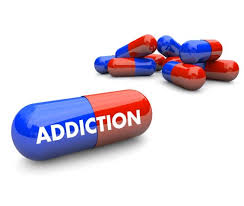Source – insidebigdata.com
In recent years, artificial intelligence has taken us further than most of us could have dreamed, and it’s being utilized in industries that never before imagined. Doesn’t it feel like we’re getting to the point where someone wants to apply AI to every facet of our social and professional lives? So it makes sense that utilizing the potential of AI would reach a hotly discussed but woefully unaddressed issue in societies across the planet: substance abuse and addiction. Here are just a few of the many ways AI is making it easier to treat addiction.
Predicting Risk of Relapse
Among the abundance of apps geared towards help those suffering from addiction is Addicaid, which was created by fellow recovering addict Sam Frons. The app combines artificial intelligence with clinical research to predict when a person may be at risk for a relapse. Addicaid will also offer up treatment suggestions. For example, if the app detects a recovering alcoholic has gone to a bar, it will immediately share phone numbers they can call or strategies they can use in that moment to avoid a relapse.
Removing Negative Influences
One of the biggest obstacles to overcome during addiction treatment is removing negative influences from one’s life. Young people fighting addiction are particularly susceptible to old friends encouraging them to slip back into addiction. To address this, a group of researchers developed an AI algorithm designed to help recovering addicts in an intervention program break off social relationships that could have a negative impact on their recovery. The app considers the relationship history between two people, and based on that assessment, will recommend if that relationship should continue or not.
Tracking Treatment
One of the more traditional forms of addiction treatment includes group meetings like Alcoholics Anonymous or Narcotics Anonymous that can provide moral support during recovery. But for people who are uncomfortable with those types of settings, there are apps like Triggr that can help. Triggr and similar apps can track how long a person has been sober and connect them via text message or chatting apps with recovery coaches who they communicate with on a daily basis. These coaches help an addict get through the daily challenges that come with recovery, providing the kind of friendship and support they need instead of having to go to a group meeting they don’t feel comfortable in.
Find Moral Support
The reason why support groups are so important for recovering addicts is that it often helps to connect people who are going through the same process. This is the basis of an app called Sober Grid, which helps people who are sober and recovering from substance abuse locate people who live nearby who are going through the same thing. The goal is to connect recovering addicts and their families with one another, while also helping them find health professionals and other resources that can assist them during the recovery process.
Starting Treatment
One of the hardest parts of addiction recovery is simply admitting there’s a problem so that person can start receiving treatment. Utilizing AI, an online platform called LionRock Addiction Recovery is helping addicts with the first steps towards the road to recovery. It’s designed for people who feel they may have a problem but are reluctant to seek professional help. The program can provide these people with lifestyle advice, such as following a diet and exercise regimen or suggesting appropriate social situations, to help them kick their bad habit. App users can also be connected to counselors with expertise in addiction. Using AI, the software is able to monitor a user’s progress and recommend what the next step in their recovery should be.
